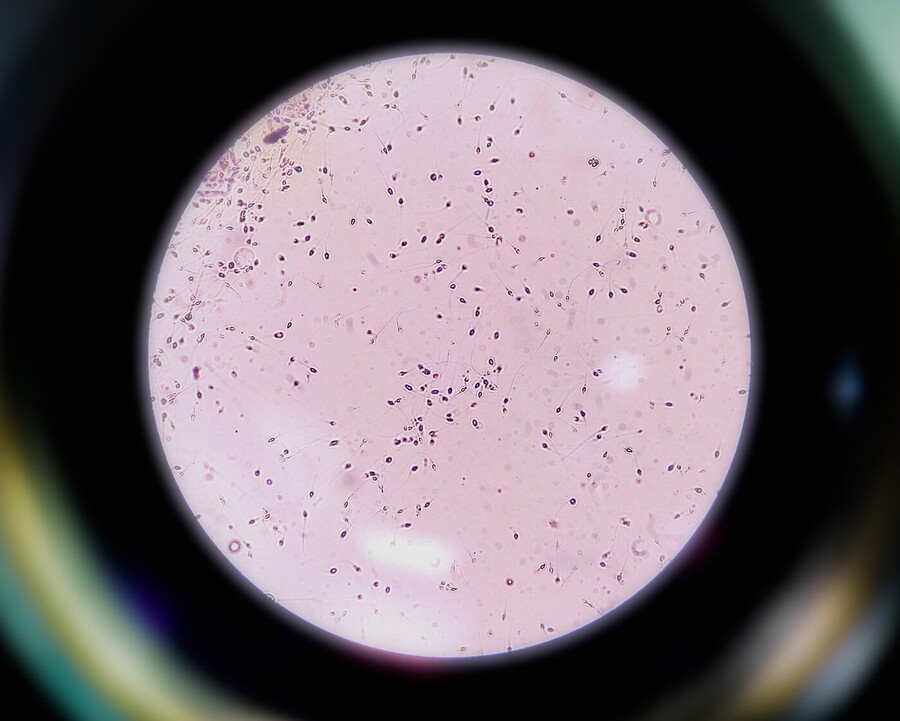Bisphenol S (BPS) was once promoted as a safer substitute for bisphenol A (BPA), a chemical widely criticized for its potential health risks. As concerns over BPA grew, manufacturers started replacing it with chemicals such as BPS in food packaging and receipts.
Now, new research is raising concern about the health risks posed by BPS, particularly its potential impact on men’s fertility.
Why BPS might not be safe after all
BPS and BPA belong to a class of chemicals known as bisphenols, which can disrupt our hormonal systems. Research has indicated that BPS can affect sperm quality in tests conducted on animals, and it could negatively impact male fertility in humans as well.
For example, a study involving semen samples from 358 men found that over 90% contained detectable levels of bisphenols, including both BPA and BPS. Higher levels of BPA were linked to reduced sperm motility, abnormal sperm shape, and lower sperm count. BPS, in turn, was found to decrease ejaculate (semen) volume and sperm count, with higher chemical concentrations linked to significant reductions. This raises serious questions about how bisphenols affect male reproductive health.
Research on animals and its implications for people
Animal studies have been conducted to delve deeper into BPS's effects. These studies have focused primarily on sperm health, mitochondrial function, and oxidative stress.
For instance, one recent study found that young male rats exposed to BPS over ten weeks faced significant fertility challenges. These rats showed lower sperm count and motility alongside notable sperm abnormalities.
While research in humans is still evolving, existing evidence is cause for concern. A study of 158 men at a fertility treatment center found that higher levels of BPS in urine were linked to lower sperm concentration and motility, and that men who had a higher body mass index (BMI) were particularly affected.
Moving towards better safety regulations
BPS is a clear example of a “regrettable substitution,” where one harmful chemical is replaced by another which may pose similar hazards.
Given the growing evidence about the dangers linked to BPS, many experts are advocating for tighter regulations. Some policymakers are taking note. For instance, California recently classified BPS as a reproductive toxicant under Proposition 65, which means that products containing significant levels of BPS will soon require warning labels.
In November 2023, the European Chemical Agency classified BPS as toxic to reproduction, highlighting the need for greater awareness regarding BPA alternatives.
Yet, BPS regulation remains limited, and its usage continues to be widespread. To protect public health, regulatory bodies must prioritize eliminating BPS from consumer products.
As research progresses, it is clear that we need safer alternatives that won't jeopardize our health. Global fertility rates are in decline. Exposure to chemicals like BPA and BPS exacerbate this reproductive crisis by contributing to infertility.
Meanwhile, avoid BPS, where you can
BPS can be found in many everyday items, often hidden in products advertised as “BPA-free.” It is particularly prevalent in thermal receipts, paper money, and food packaging materials. Research has shown that levels of BPS in receipt paper can be nearly as high as those of BPA in the past. Daily interactions with receipts or using BPA-free plastics can lead to significant exposure to these chemicals through the skin.
Minimizing your exposure to chemicals like BPS can be challenging, but there are some practical steps individuals can take:
- Reduce contact with thermal paper receipts, as they often contain high levels of BPS. Possibly switch to email receipts. If you work with receipts, you could wear gloves and limit how often you handle paper receipts.
- Be cautious with “BPA-free” products, as many still contain other bisphenols. Read labels carefully and opt for alternatives like glass or stainless steel.
- Processed and packaged foods usually come in plastic that could contain bisphenols. Avoid processed foods and opt for fresh foods when possible.
- Stay informed and support change. Follow new regulations and health recommendations regarding chemicals to stay updated on safer practices.
The Biomonitoring California website, maintained by the state of California, provides more information on BPS sources and ways to reduce exposure. While avoiding bisphenols entirely may be difficult, these small measures can help lower potential risks in the short term until stronger regulations are implemented.
For more information about BPS, we invite you to watch the recording of this CHE webinar: Regrettable Replacements: The Next Generation of Endocrine Disrupting Chemicals. Making informed choices today can lead to a healthier tomorrow.


